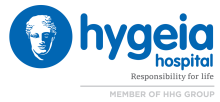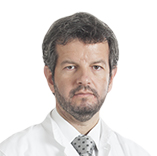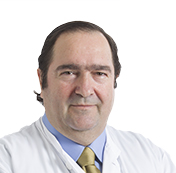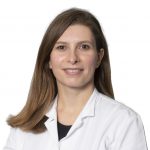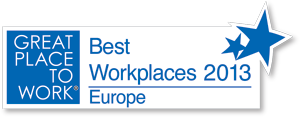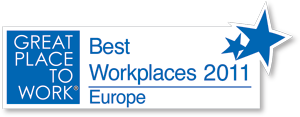- HYGEIA
- Vision & Mission
- Timeline
- Organizational structure
- Press Releases
- Social responsibility
- Awards and Distinctions
- Human Resources
- Scientific & Training activities
- Articles – Publications
- Our Facilities
- Magazines
- Healthcare Programs
- Doctors
- Services
- Medical Divisions & Services
- Imaging Divisions
- Departments
- Units
- Centers of Excellence
- Emergency – Outpatient
- Nursing Service
- Ambulances
- Patients
- Hygeia
- Υπηρεσίες
- Ιατρικά Τμήματα & Υπηρεσίες
Clinical Neurophysiology Department
Neurological illnesses show increased frequency in recent years due changes in lifestyle; additionally, a diagnosis can be easily obtained, something that wasn’t possible previously. According to estimations, 30% of our country’s population is suffering already or is going to develop some sort of headache. In our country, twenty thousand patients suffer from Parkinson’s disease. Every year there is an addition of twelve hundred cases to this number.
HYGEIA’s Clinical Neurophysiology Department is one the most modern of its kind across Greece. It is equipped with the latest technology machines as well as specially trained personnel, and can cover any relevant case.
Clinical neurophysiology plays a major role in the diagnosis of peripheral and central neurological conditions. The Department is not only diagnostic, but it involves therapeutic procedures with the use of bolutin and toxiure infections on patients with focal and segmental dystonia, such as blepharospasm, writer’s cramp and tarticollis as well as hyperhidrosis and salivation. Focal or generalized spasticity is also treated with botulinium toxine.
This department is mainly responsible for the selection of patients who are undergoing surgery for deep brain stimulation (currently suggesting Parkinson’s disease, tremor, dystonia, and obsessive compulsive disorder), for neurophysiologic observation during surgery to specify the impulse target and for the post surgical progress and stimulation adjustment.
Conditions under investigation are: cerebral deseases and injuries, diseases and injuries of the peripheral nervous system; laboratory distinction is possible between central or peripheral patient conditions such as dizziness, vertigo, epileptic seizures, Parkinson’s disease, multiple sclerosis, various neuropathies, nerve damage from other conditions (e.g. diabetes),nervous system tumors and myopathies, primary and secondary e.g. of endocrinologic cause. In many cases, if patients of the above set are not diagnosed and treated on time, their condition may develop into serious problems even disability or death. Therapy in this Department is conducted with simultaneous neurophysiologic control through dystonia’s TIC alantotoxine, and through various spasticity syndromes. The examinations below are being conducted by the Clinical Neurophysiology Department of HYGEIA.
For the treatment of those neurological conditions, research into various illustrative and biochemical tests (clinical, axial and magnetic tomography, laboratory tests), is very important. For clinical conditions like advanced stage Parkinson’s disease, a new treatment has become possible: implantation of electrodes in the brain, with satisfactory results.
In many cases, if patients of the above set are not diagnosed and treated on time, their condition may develop into serious problems even disability or death. Therapy in this Department is conducted with simultaneous neurophysiologic control through dystonia’s TIC alantotoxine, and through various spasticity syndromes. The examinations below are being conducted by the Clinical Neurophysiology Department of HYGEIA.
- Electromyogram – neurograph of nerves’ speed transmission, for investigation of distal nerve damage such as polyneuropathies, root damage in spine problems, pressure nerve damage like the carpal canal’s syndrome, myopathies and myasthenias.
- Electroretinogram – for investigation of special retinal conditions.
- Electronystagmogram – for investigations of brain and labyrinth conditions that cause dizziness and vertigo.
- Evoted Potential – (visual, acoustic, soma-esthetic and kinetic) – for investigation of conditions of the central as well as the distal and autonomous nervous systems and especially of multiple sclerosis.
- Electroencephalogram – brain charting for brain disease investigations, especially epilepsy.
- Electroencephalogram with videometry for perfecting focus and identification of epileptic seizures.
- Electroencephalogram with several hours of recording for better diagnosis of epilepsy.
- Therapeutic injection: bolutin with or without modern myography or ultrasoundography examination.
- Tremor study: neurophysiological study for the division of type and cause of fear. E.g. Parkinson’s tremor or idiopathic tremor
- Tests of the autonomous nervous system: with the sympathetic skin response test and study of the heart rate variation the examination of the vegetative nervous system is possible.
- L-Dopa Test: Study for patient suitability to undergo deep bain stimulation of the hypothalamic nucleus or globus pallidus internous or suitability for Duodopa pump implantation.
- Neurophysiological stimulation adjustment: neurological observation of the cerebral stimulant carrier with adjustment of the neurostimulant’s electrical current according to their clinical picture.
- Following examinations are offered in this department:
- Electroengephalogram EEG
- Electroengephalogram at lying patient
- Electroengephalogram at home
- Electromyography-Electroneurography upper extremities
- EMG-ENG LOWER EXTREMITIES
- EMG-ENG ALL 4 EXTREMITIES
- EMG –ENG lower extremities at lying patient
- Visual evoked Potentials
- Somatosensory evoked Potentials
- Magnetic (motor)evoked Potentials
- Evoked Brain stem potentials
- Evoked potentials at lying patient
- Electroretinogram
- Sympathetic Skin reponse
- Electronystagmography
- Therapeutic injection of Botulinum toxin
- EMG guided injection of botilinum toxin
- EMG with Jitter (Single Fiber Myography)
- Autonomus nervous system test
- 24h video EEG
- 24 hours EEG
- P300
EEG with extra videometry 6h
Electrophysiology study for brainstem lesions Contact Us
Contact Us4th floor
Τelephone
+30 210 686 7475
+30 210 686 7436
+30 210 686 7575Medical Team
- Director
-
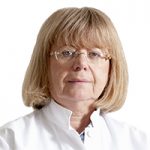 Lekkou Georgia
Lekkou Georgia
- © 2007-2024 HYGEIA S.M.S.A.
- Personal Data Protection Policy
- COOKIES Policy
- Terms of Use
- Privacy Policy
- Credits
- Sitemap
- Made by minoanDesign
Ο ιστότοπoς μας χρησιμοποιεί cookies για να καταστήσει την περιήγηση όσο το δυνατόν πιο λειτουργική και για να συγκεντρώνει στατιστικά στοιχεία σχετικά με τη χρήση της. Αν θέλετε να λάβετε περισσότερες πληροφορίες πατήστε Περισσότερα ή για να αρνηθείτε να παράσχετε τη συγκατάθεσή σας για τα cookies, πατήστε Άρνηση. Συνεχίζοντας την περιήγηση σε αυτόν τον ιστότοπο, αποδέχεστε τα cookies μας.
Αποδοχή όλων Άρνηση όλων ΡυθμίσειςCookies ManagerΡυθμίσεις Cookies
Ο ιστότοπoς μας χρησιμοποιεί cookies για να καταστήσει την περιήγηση όσο το δυνατόν πιο λειτουργική και για να συγκεντρώνει στατιστικά στοιχεία σχετικά με τη χρήση της. Αν θέλετε να λάβετε περισσότερες πληροφορίες πατήστε Περισσότερα ή για να αρνηθείτε να παράσχετε τη συγκατάθεσή σας για τα cookies, πατήστε Άρνηση. Συνεχίζοντας την περιήγηση σε αυτόν τον ιστότοπο, αποδέχεστε τα cookies μας.




















